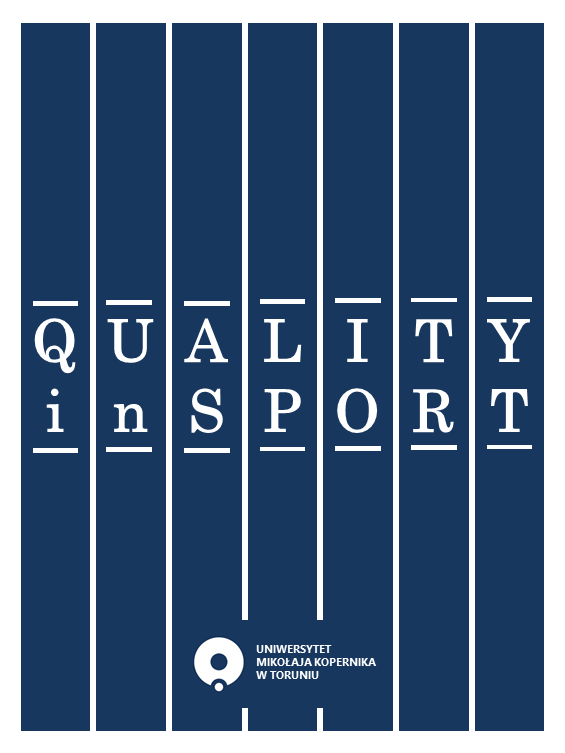The role of gut microbiota in the development of autoimmune disease - a literature review
DOI:
https://doi.org/10.12775/QS.2025.41.60289Keywords
gut microbiota, autoimmune disease, gut-associated lymphoid tissue (GULT), dysbiosis, Fecal microbiota transplantation (FMT), probiotics, prebioticsAbstract
The gut microbiota plays a crucial role in maintaining immune balance, and its dysregulation has been increasingly linked to the development of autoimmune diseases. This review summarizes evidence connecting microbial alterations to conditions such as type 1 diabetes, rheumatoid arthritis, multiple sclerosis, and inflammatory bowel disease. Changes in microbial diversity and the overgrowth of pro-inflammatory species appear to trigger immune pathways that drive disease progression. Therapeutic strategies aimed at restoring gut balance, including probiotics, prebiotics, fecal microbiota transplantation (FMT), and dietary and lifestyle interventions, show promise in modulating immune responses and improving outcomes. However, despite encouraging results, significant gaps remain regarding the causality of these associations, the long-term safety of interventions like FMT, and the need for individualized therapeutic approaches. Advances in microbiome research, including metagenomic profiling, offer hope for developing personalized treatments. Further studies are necessary to better understand the complex interactions between the gut microbiota and the immune system in autoimmune diseases.
References
1. Adak A, Khan MR. An insight into gut microbiota and its functionalities. Cell Mol Life Sci. 2019;76(3):473-493. doi:10.1007/s00018-018-2943-4
2. Lozupone CA, Stombaugh JI, Gordon JI, Jansson JK, Knight R. Diversity, stability and resilience of the human gut microbiota. Nature. 2012;489(7415):220-230. doi:10.1038/ nature11550
3. Round JL, Mazmanian SK. The gut microbiota shapes intestinal immune responses during health and disease [published correction appears in Nat Rev Immunol. 2009 Aug;9(8):600]. Nat Rev Immunol. 2009;9(5):313-323. doi:10.1038/nri2515
4. David LA, Maurice CF, Carmody RN, et al. Diet rapidly and reproducibly alters the human gut microbiome. Nature. 2014;505(7484):559-563. doi:10.1038/nature12820
5. Goodrich JK, Waters JL, Poole AC, et al. Human genetics shape the gut microbiome. Cell. 2014;159(4):789-799. doi:10.1016/j.cell.2014.09.053
6. Jernberg C, Löfmark S, Edlund C, Jansson JK. Long-term ecological impacts of antibiotic administration on the human intestinal microbiota [published correction appears in ISME J. 2013 Feb;7(2):456]. ISME J. 2007;1(1):56-66. doi:10.1038/ismej.2007.3
7. Dominguez-Bello MG, Costello EK, Contreras M, et al. Delivery mode shapes the acquisition and structure of the initial microbiota across multiple body habitats in newborns. Proc Natl Acad Sci U S A. 2010;107(26):11971-11975. doi:10.1073/pnas.1002601107
8. Pannaraj PS, Li F, Cerini C, et al. Association Between Breast Milk Bacterial Communities and Establishment and Development of the Infant Gut Microbiome. JAMA Pediatr. 2017;171(7): 647-654. doi:10.1001/jamapediatrics.2017.0378
9. Belkaid Y, Harrison OJ. Homeostatic Immunity and the Microbiota. Immunity. 2017;46(4): 562-576. doi:10.1016/j.immuni.2017.04.008
10. Mabbott NA, Donaldson DS, Ohno H, Williams IR, Mahajan A. Microfold (M) cells: important immunosurveillance posts in the intestinal epithelium. Mucosal Immunol. 2013;6(4):666-677. doi:10.1038/mi.2013.30
11. Atarashi K, Tanoue T, Shima T, et al. Induction of colonic regulatory T cells by indigenous Clostridium species. Science. 2011;331(6015):337-341. doi:10.1126/science.1198469
10 z 11
12. Lee YK, Menezes JS, Umesaki Y, Mazmanian SK. Proinflammatory T-cell responses to gut microbiota promote experimental autoimmune encephalomyelitis. Proc Natl Acad Sci U S A. 2011;108 Suppl 1(Suppl 1):4615-4622. doi:10.1073/pnas.1000082107
13. Takeuchi O, Akira S. Pattern recognition receptors and inflammation. Cell. 2010;140(6): 805-820. doi:10.1016/j.cell.2010.01.022
14. Arpaia N, Campbell C, Fan X, et al. Metabolites produced by commensal bacteria promote peripheral regulatory T-cell generation. Nature. 2013;504(7480):451-455. doi:10.1038/ nature12726
15. Honda K, Littman DR. The microbiota in adaptive immune homeostasis and disease. Nature. 2016;535(7610):75-84. doi:10.1038/nature18848
16. Paray BA, Albeshr MF, Jan AT, Rather IA. Leaky Gut and Autoimmunity: An Intricate Balance in Individuals Health and the Diseased State. Int J Mol Sci. 2020;21(24):9770. Published 2020 Dec 21. doi:10.3390/ijms21249770
17. Wucherpfennig KW. Mechanisms for the induction of autoimmunity by infectious agents. J Clin Invest. 2001;108(8):1097-1104. doi:10.1172/JCI14235
18. Root-Bernstein R, Fairweather D. Complexities in the relationship between infection and autoimmunity. Curr Allergy Asthma Rep. 2014;14(1):407. doi:10.1007/s11882-013-0407-3
19. Vatanen, T., Franzosa, E.A., Schwager, R. et al. The human gut microbiome in early-onset type 1 diabetes from the TEDDY study. Nature 562, 589–594 (2018). https://doi.org/10.1038/ s41586-018-0620-2
20. Scher JU, Sczesnak A, Longman RS, et al. Expansion of intestinal Prevotella copri correlates with enhanced susceptibility to arthritis. Elife. 2013;2:e01202. Published 2013 Nov 5. doi: 10.7554/eLife.01202
21. Cekanaviciute E, Yoo BB, Runia TF, et al. Gut bacteria from multiple sclerosis patients modulate human T cells and exacerbate symptoms in mouse models [published correction appears in Proc Natl Acad Sci U S A. 2017 Oct 17;114(42):E8943. doi: 10.1073/pnas. 1716911114.]. Proc Natl Acad Sci U S A. 2017;114(40):10713-10718. doi:10.1073/pnas. 1711235114
22. Miquel S, Martín R, Rossi O, et al. Faecalibacterium prausnitzii and human intestinal health. Curr Opin Microbiol. 2013;16(3):255-261. doi:10.1016/j.mib.2013.06.003
23. Zegarra-Ruiz DF, El Beidaq A, Iñiguez AJ, et al. A Diet-Sensitive Commensal Lactobacillus Strain Mediates TLR7-Dependent Systemic Autoimmunity. Cell Host Microbe. 2019;25(1): 113-127.e6. doi:10.1016/j.chom.2018.11.009
24. O'Mahony L, McCarthy J, Kelly P, et al. Lactobacillus and bifidobacterium in irritable bowel syndrome: symptom responses and relationship to cytokine profiles. Gastroenterology. 2005;128(3):541-551. doi:10.1053/j.gastro.2004.11.050
25. Dera N, Kosińska-Kaczyńska K, Żeber-Lubecka N, et al. Impact of Early-Life Microbiota on Immune System Development and Allergic Disorders. Biomedicines. 2025;13(1):121. Published 2025 Jan 7. doi:10.3390/biomedicines13010121
26. Paramsothy S, Kamm MA, Kaakoush NO, et al. Multidonor intensive faecal microbiota transplantation for active ulcerative colitis: a randomised placebo-controlled trial. Lancet. 2017;389(10075):1218-1228. doi:10.1016/S0140-6736(17)30182-4
27. Valdes AM, Walter J, Segal E, Spector TD. Role of the gut microbiota in nutrition and health. BMJ. 2018;361:k2179. Published 2018 Jun 13. doi:10.1136/bmj.k2179
Downloads
Published
How to Cite
Issue
Section
License
Copyright (c) 2025 Karolina Baran, Marlena Jankowska, Natalia Jańczyk, Karolina Mędrysa, Jakub Pokrzepa, Michał Presak, Gabriela Blecharz, Julia Szwech, Mikołaj Pograniczny, Adrianna Mielżyńska

This work is licensed under a Creative Commons Attribution-NonCommercial-ShareAlike 4.0 International License.
Stats
Number of views and downloads: 417
Number of citations: 0



